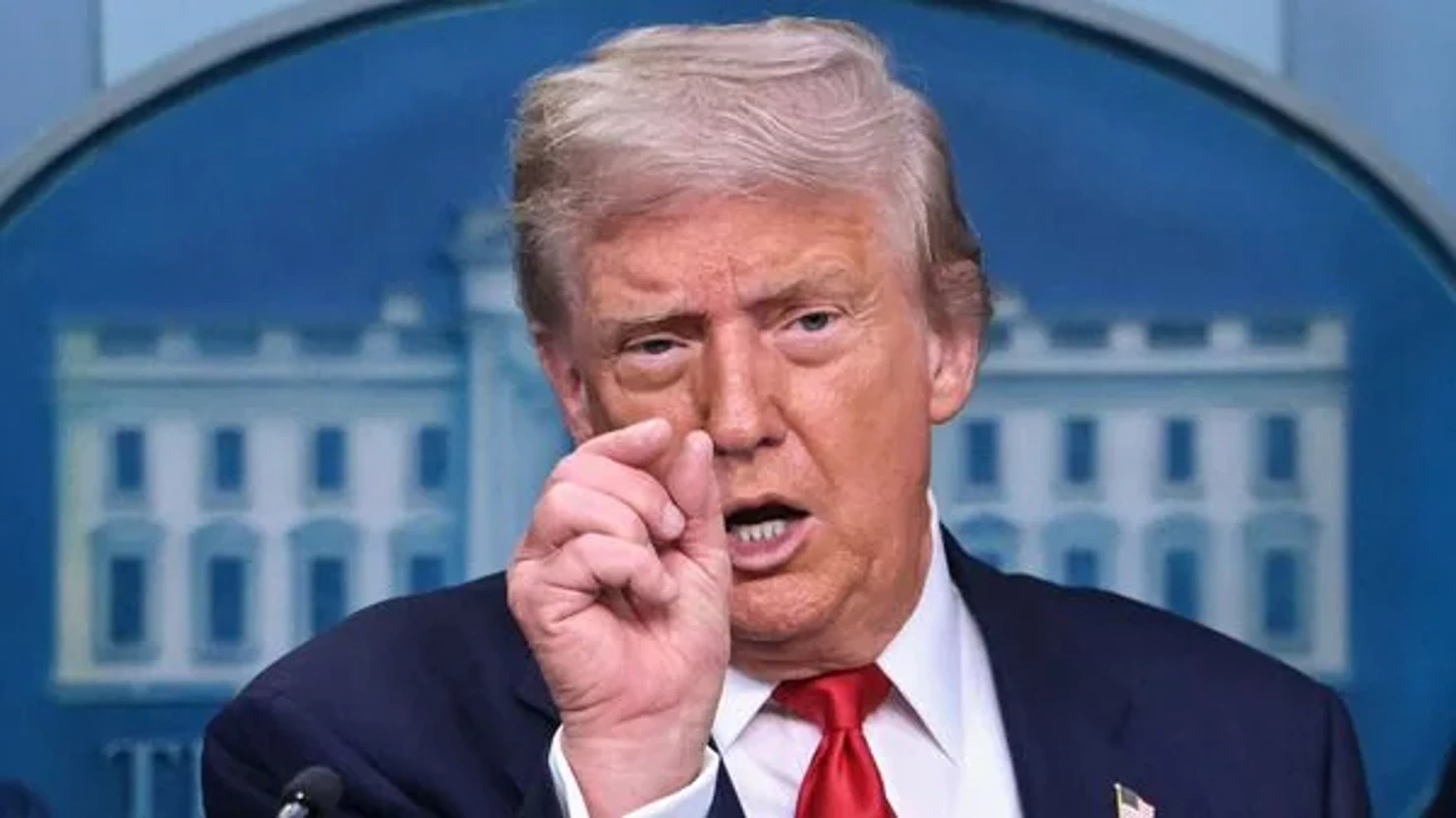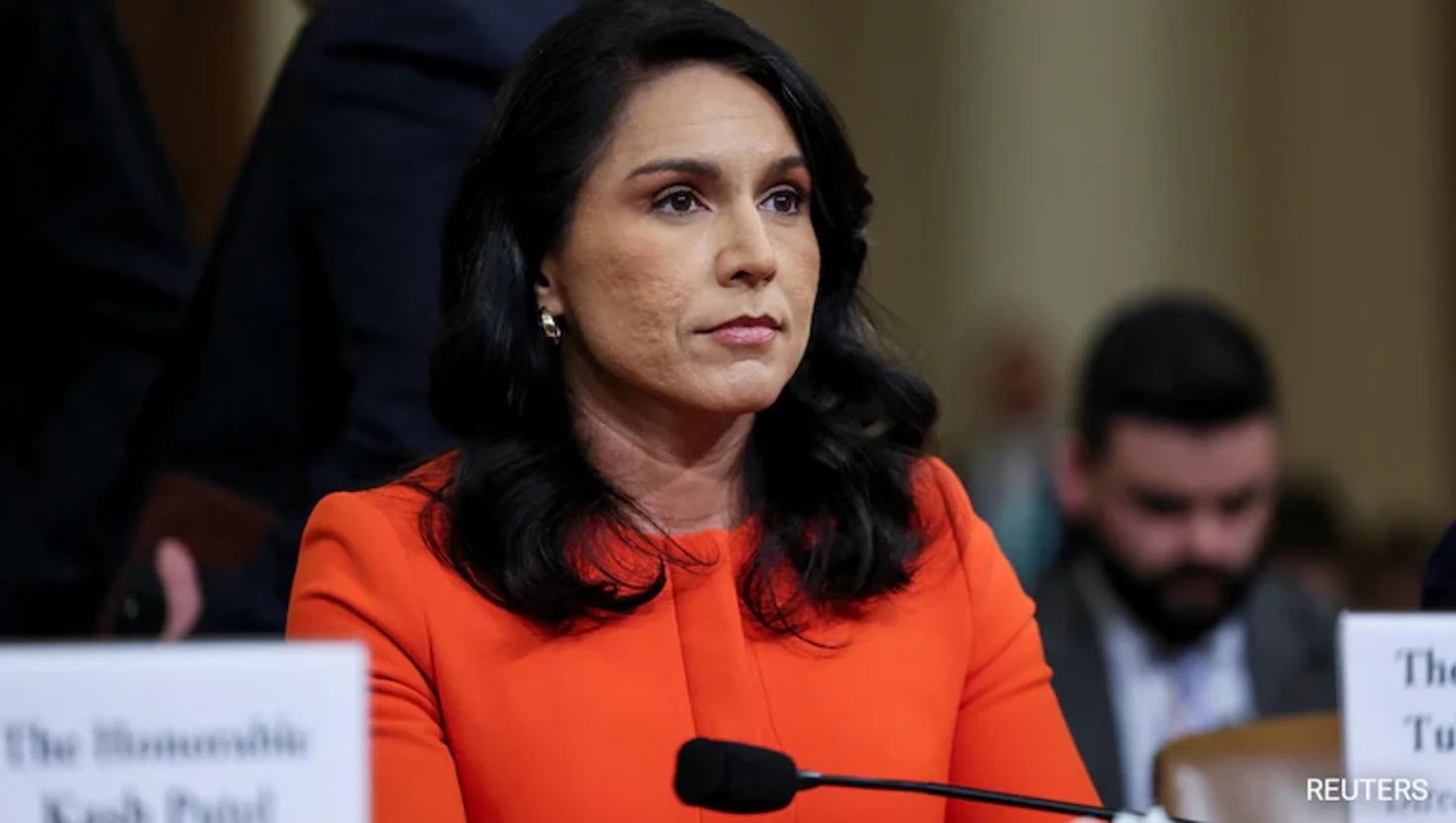Trump Announces Federal Control Over Washington D.C. Police Force

Trump Announces Federal Control Over Washington D.C. Police Force
President Donald Trump deploys the National Guard and assumes control of D.C. police as part of new crime and homelessness initiatives.
US President Donald Trump has declared a federal takeover of the Metropolitan Police Department in Washington, D.C., announcing on Monday the deployment of the National Guard in an effort to combat rising crime and homelessness. Speaking at a press conference, Trump stated that the nation’s capital has been adversely affected by violent gangs, stating, "Our capital city has been overtaken by violent gangs and bloodthirsty criminals.", which echoes his administration's ongoing focus on law enforcement policies.
The announcement included plans for approximately 800 National Guard personnel to assist local law enforcement, with Trump indicating that an enhanced federal presence was necessary. This comes after a spate of incidents that has raised concerns among residents and officials alike. "The Metropolitan Police Department and federal authorities will be supported in this effort," Trump added, addressing public safety as a top priority.
Context and Implications
The action is supported by a law granting the President emergency powers over the D.C. police during serious security threats. Trump cited this authority, emphasising that the move seeks to address the city’s perceived safety issues effectively. He described the situation as intolerable, mentioning issues relating to crime and the visible homeless population.
The National Guard’s role will focus primarily on logistical support and freeing local police for further operational tasks, similar to past deployments that had raised local government concerns. Notably, such measures have previously faced opposition from local officials, who argue that it undermines their authority.
Mayor of Washington D.C., Muriel Bowser, a Democrat, responded critically to the federal government's involvement. She pointed out that crime rates in the city have been on a decline, refuting Trump’s characterisation of the city as unsafe. "We are not experiencing a spike in crime. In fact, we’re watching our crime numbers go down," Bowser stated, calling the president’s comparisons exaggerated.
Federal and Local Coordination
According to administration sources, over 500 federal law enforcement officers, including agents from the FBI and the Bureau of Alcohol, Tobacco, Firearms and Explosives, will be deployed throughout the capital under the new plan. The objective is to bolster local law enforcement efforts and enhance public safety. However, the Department of Justice had not provided immediate comments regarding the president’s announcement.
Trump’s approach comes amidst broader discussions about public safety strategies, but some experts have raised concerns regarding the balance of power between federal and local authorities. The president's administration has experienced pushback from both political and community leaders about the effectiveness of a militarised approach to policing urban areas.
Public Reaction and Further Actions
The president has also focused on the homelessness crisis, stating in a recent social media post that those without shelter must be moved away from the city and promising alternative accommodations. "The Homeless have to move out, IMMEDIATELY. We will give you places to stay, but FAR from the Capital," Trump declared, sparking questions about the logistics and ethics of such actions.
As discussions continue about how to effectively address crime and homelessness, many residents await clarity on what these changes will entail. The White House has so far been vague regarding the specific actions planned under the new directive, leaving ambiguity about the future safety landscape in Washington D.C.
Prominent figures, including the mayor, have called for more nuanced approaches to address public safety, including better funding for local judicial systems rather than increasing federal control.
Conclusion
As part of his administration's broader law enforcement agenda, President Trump’s declaration brings significant attention to ongoing safety and societal challenges within the capital. While he positions the federal government as a stabilising force, local leaders continue to advocate for autonomy in addressing the city’s issues. The evolving situation will likely be closely monitored by both supporters and critics as it develops further in the coming weeks.
The announcement included plans for approximately 800 National Guard personnel to assist local law enforcement, with Trump indicating that an enhanced federal presence was necessary. This comes after a spate of incidents that has raised concerns among residents and officials alike. "The Metropolitan Police Department and federal authorities will be supported in this effort," Trump added, addressing public safety as a top priority.
Context and Implications
The action is supported by a law granting the President emergency powers over the D.C. police during serious security threats. Trump cited this authority, emphasising that the move seeks to address the city’s perceived safety issues effectively. He described the situation as intolerable, mentioning issues relating to crime and the visible homeless population.
The National Guard’s role will focus primarily on logistical support and freeing local police for further operational tasks, similar to past deployments that had raised local government concerns. Notably, such measures have previously faced opposition from local officials, who argue that it undermines their authority.
Mayor of Washington D.C., Muriel Bowser, a Democrat, responded critically to the federal government's involvement. She pointed out that crime rates in the city have been on a decline, refuting Trump’s characterisation of the city as unsafe. "We are not experiencing a spike in crime. In fact, we’re watching our crime numbers go down," Bowser stated, calling the president’s comparisons exaggerated.
Federal and Local Coordination
According to administration sources, over 500 federal law enforcement officers, including agents from the FBI and the Bureau of Alcohol, Tobacco, Firearms and Explosives, will be deployed throughout the capital under the new plan. The objective is to bolster local law enforcement efforts and enhance public safety. However, the Department of Justice had not provided immediate comments regarding the president’s announcement.
Trump’s approach comes amidst broader discussions about public safety strategies, but some experts have raised concerns regarding the balance of power between federal and local authorities. The president's administration has experienced pushback from both political and community leaders about the effectiveness of a militarised approach to policing urban areas.
Public Reaction and Further Actions
The president has also focused on the homelessness crisis, stating in a recent social media post that those without shelter must be moved away from the city and promising alternative accommodations. "The Homeless have to move out, IMMEDIATELY. We will give you places to stay, but FAR from the Capital," Trump declared, sparking questions about the logistics and ethics of such actions.
As discussions continue about how to effectively address crime and homelessness, many residents await clarity on what these changes will entail. The White House has so far been vague regarding the specific actions planned under the new directive, leaving ambiguity about the future safety landscape in Washington D.C.
Prominent figures, including the mayor, have called for more nuanced approaches to address public safety, including better funding for local judicial systems rather than increasing federal control.
Conclusion
As part of his administration's broader law enforcement agenda, President Trump’s declaration brings significant attention to ongoing safety and societal challenges within the capital. While he positions the federal government as a stabilising force, local leaders continue to advocate for autonomy in addressing the city’s issues. The evolving situation will likely be closely monitored by both supporters and critics as it develops further in the coming weeks.

Wrestling Icon Hulk Hogan Dies at 71, Leaving Lasting Legacy
Professional wrestler Hulk Hogan, known for his charisma and influence in the sport, passes away at 71, leaving a profound impact on wrestling culture.
| 2025-07-25

Tulsi Gabbard Publishes Documents Alleging Obama Administration Misconduct
Tulsi Gabbard has released documents claiming the Obama administration misused intelligence regarding the 2016 US presidential election.
| 2025-07-24

US President Donald Trump imposes 30% tariffs on imports from the European Union and Mexico from 1 August
US President Donald Trump announces 30% tariffs on EU and Mexico from 1 August, threatening higher taxes if retaliated. The EU and Mexico prepare countermeasures.
| 2025-07-13

Federal Judge Blocks Trump's Birthright Citizenship Order Nationwide
A US judge halts President Trump’s order ending birthright citizenship, granting nationwide protection for children born to non-citizens.
| 2025-07-11

Starlink Approved to Launch Satellite Internet Services in India
India has authorised Starlink to operate satellite broadband, marking a milestone in expanding internet connectivity with Elon Musk’s low Earth orbit network.
| 2025-07-10




